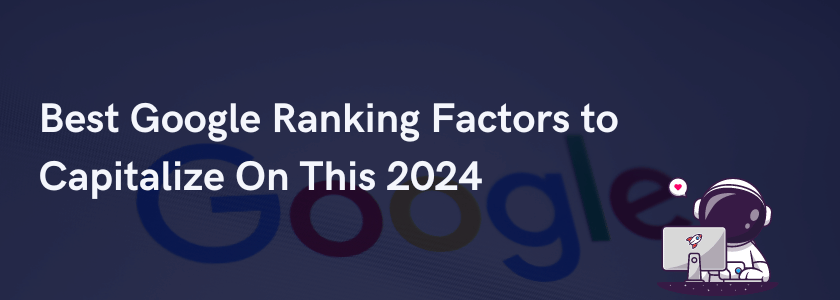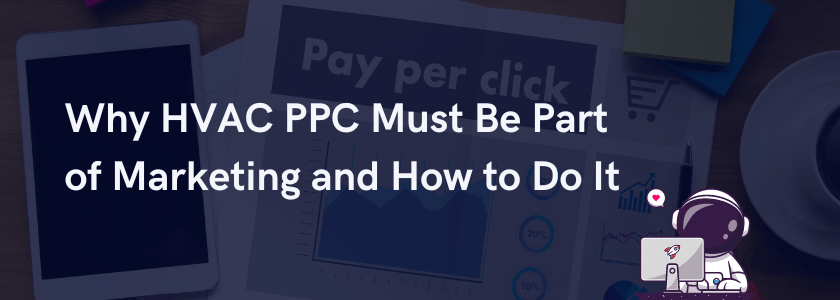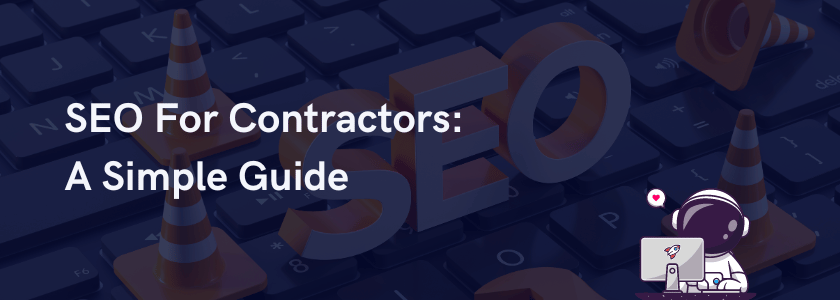Without proper knowledge and direction, navigating SEO can feel like treasure hunting without a map. To help you out, we listed the top 10 Google ranking factors to consider in 2024. Focusing on these metrics can help your site climb to the top. Let’s dive in!
Quality Content: The Heart of Your Website
Content is among the most important Google ranking factors to consider in 2024. Imagine your website is a book. Would people want to read it from start to finish, or would they put it down after the first page?
Google loves websites that offer valuable, original content. This means writing articles, posts, and guides that provide new information and decent website copy to make people buy a product or service.
Additionally, keeping your content fresh and updated is like publishing a new edition of your book. It ensures your readers and Google come back for more.
Mobile Optimization: Make It Snappy on Smartphones
These days, your phone is as important as your laptop, maybe even more. Most people browse the internet on their mobile devices, which is why it’s one of the top Google ranking factors in 2024.
So make sure your website looks good and works well on a small screen. That means texts should be readable without zooming, links easy to click, and pages quick to load.
Making your website mobile-friendly will allow more people to access it. If someone can visit your website on their phone while having coffee and enjoy it, you’re on the right track.
Page Speed: Fast and Furious Wins the Race
Nobody likes waiting, especially online. If your pages take forever to load, visitors will leave. Page speed is included among the top 2024 Google ranking factors.
Improving your website’s speed is like tuning up a car for a race. The faster it goes, the better it performs.
Start by compressing images, optimizing codes, and choosing the best hosting service. This will help your pages load faster, improving user experience (UX) and improving your chances of ranking higher.
User Experience (UX): Make Visitors Feel at Home
Imagine inviting friends over. You’d want them to feel comfortable in your home, right? Well, it works the same with websites.
Google values how visitors interact with your site. A good user experience means your website is easy to navigate, has a clear layout and design, and provides enjoyable content. Elements like clear menus, search bars, and engaging visuals can also guide your visitors smoothly through your site.
In short, a happy website visitor is likely to stay longer, explore more, and return. This signals to Google that your site is worth a higher ranking.
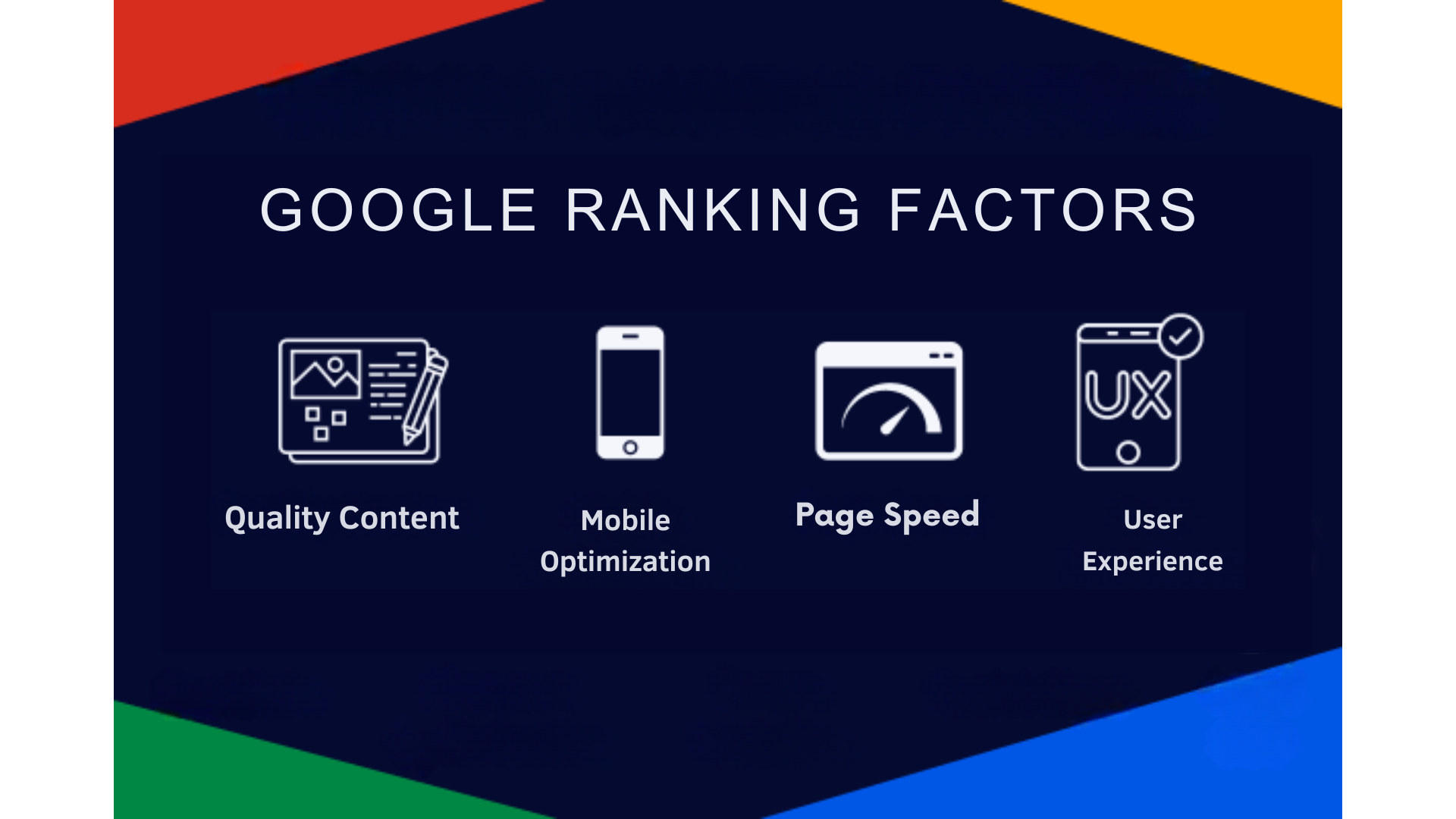
Backlinks: Good Neighbors Boost Your Reputation
Backlinks are among the most critical Google ranking factors in 2024. Each link to your site signals to Google that your content is valuable and trustworthy.
However, not all votes are equal. Links from reputable, relevant sites have more weight. It’s like being recommended by a well-respected friend in your community.
To earn these valuable links, you should create standout content that others want to share or by reaching out and building relationships with other site owners. When it comes to backlink building, quality always wins over quantity.
Keyword Optimization: Speak Your Audience’s Language
Using the right keywords is like speaking the same language as your audience. It also helps Google understand your website and match it to what people are searching for.
Now, while adding keywords, beware of keyword stuffing. Overloading your website and content with too many keywords can backfire. So, instead, sprinkle them naturally throughout your headlines, content, meta descriptions, and URLs.
Consider what terms your audience might use to find you and weave them thoughtfully into your content. It’s all about balance and relevance.
Secure Websites (HTTPS): Safety First
Security is a top priority in the real world and online. Google prefers websites that keep their visitors’ data safe.
Switching your site to HTTPS, which encrypts data between the browser and the website, is like putting a decent lock on your door. It tells visitors and Google that you’re serious about security.
In contrast, websites without HTTPS will rank lower and scare away visitors who don’t feel safe. Think of it as your website’s bodyguard, keeping threats at bay.
Structured Data: Help Google Understand Your Content
Structured data is like giving Google a catalog of your site’s content. It uses a specific format to tell search engines what your data means, not just what it says. This could be articles, reviews, product information, or events.
Complementing your content with structured data makes it easier for Google to display it in rich snippets or other search features. It puts your content in the best possible light, making it more attractive for both Google and your potential visitors.
Social Signals: The Power of Shares and Likes
While Google says social signals like shares and likes aren’t direct ranking factors, they can still help your website. Each share is like a ripple spreading across a pond, increasing visibility. The more people talk about your content on social media, the more traffic you get.
This increased presence can lead to more backlinks and higher engagement, which Google loves. It’s about building your brand’s presence and authority online. So engage with your target audience, share valuable content, and encourage interaction to boost your site’s relevance and authority.
Local SEO: Be the Big Fish in Your Local Pond
For small brands, dominating the local search results can be a game-changer. Google specializes in local searches, like “coffee shop near me” or “Google SEO ranking factors 2024.”
To rank better, make sure your business is listed accurately on Google My Business, emphasize local keywords, and get listed in local directories and business listings. Tell satisfied customers to leave positive reviews and include local landmarks or events in your content.
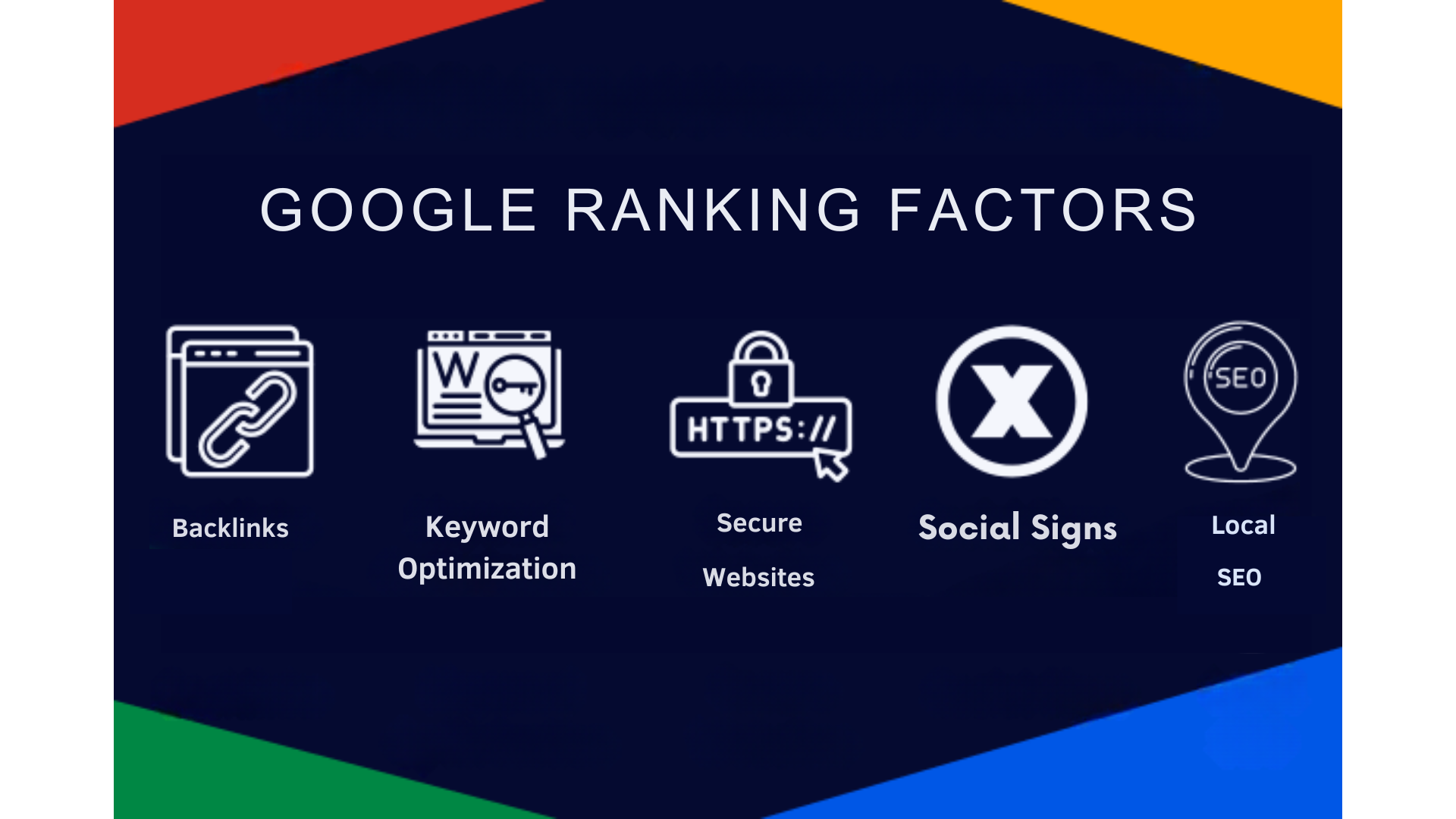
Frequently Asked Questions
Do I need to be a tech expert to improve my website’s Google ranking?
No, you don’t! Many tools and platforms make it easy to optimize your website, even if you’re not a tech whiz. Focus on the best Google ranking factors in 2024, and you’re good to go.
How often should I update my website’s content to maintain a good ranking?
It’s a good idea to update your website regularly, but there’s no one-size-fits-all answer. Add fresh, high-quality content that provides value to your readers at least once a week. Keeping your site updated signals to Google that your site is active and relevant.
Can social media really affect my website’s Google ranking?
Directly, no, but indirectly, yes. Social media can increase your website’s visibility and drive traffic, leading to more backlinks and higher engagement. This can positively impact your site’s authority and, consequently, its Google ranking.
Is it worth investing in HTTPS for my small blog or website?
Absolutely! HTTPS is like a security badge for your website. It protects your visitors’ data and boosts their confidence in your site. Google also prefers secure sites, so it’s a smart move for improving your ranking and visitor trust.
Gear Up for Victory: Boost Your Google Rankings Today!
SEO is a marathon, not a sprint. By focusing on the 10 best Google ranking factors in 2024, you’re setting your site up for success. Start implementing the right strategies today, and watch your website rise to the top of Google’s ranks.
Need help including these factors in your SEO strategy? Contact Reach Digital today, and we’ll help you out!


